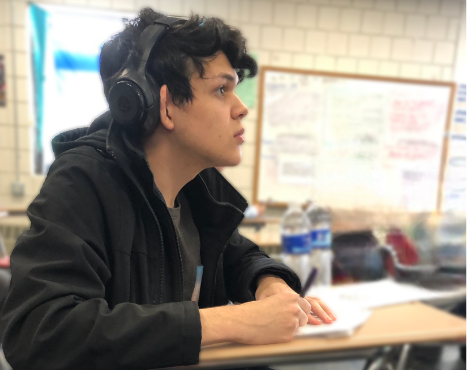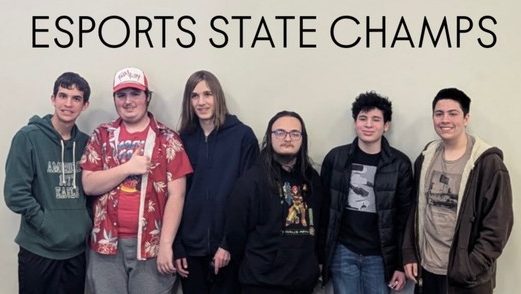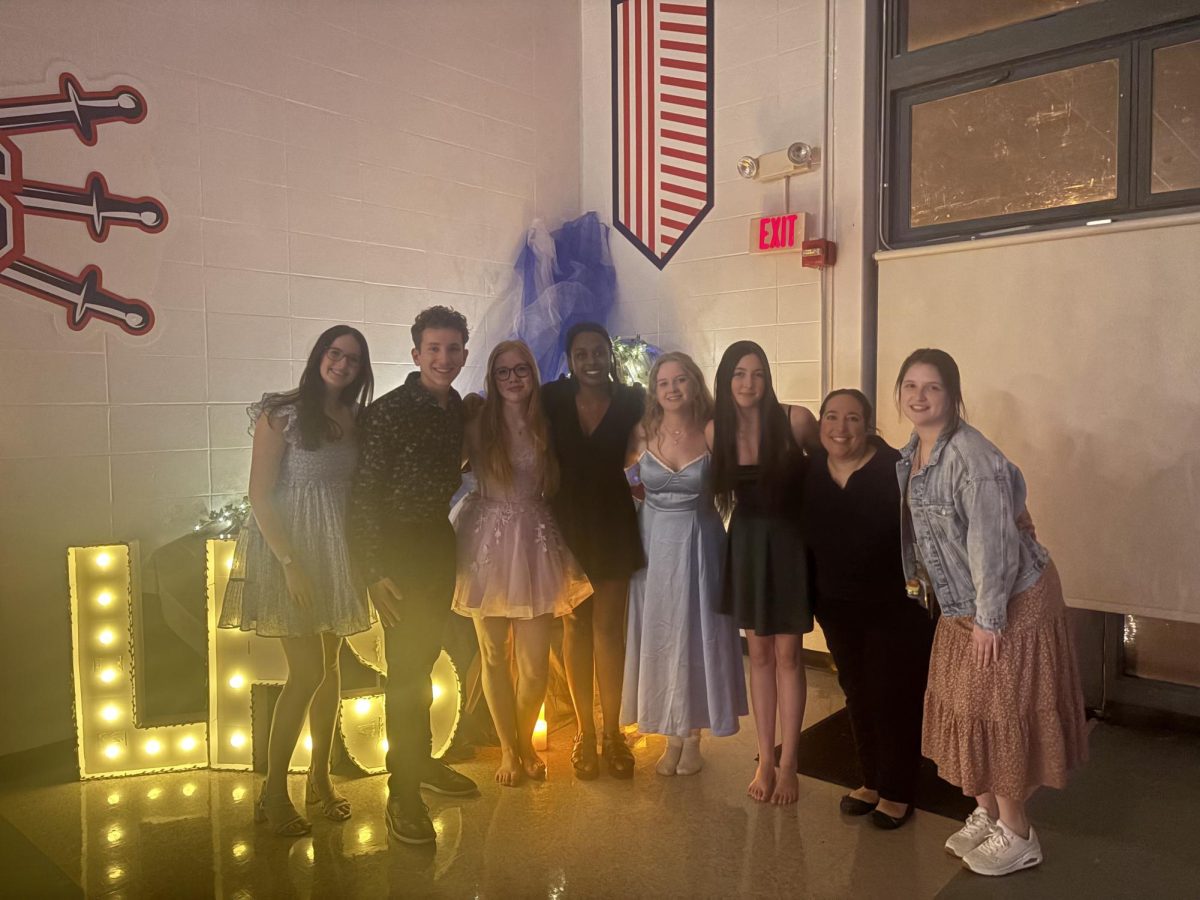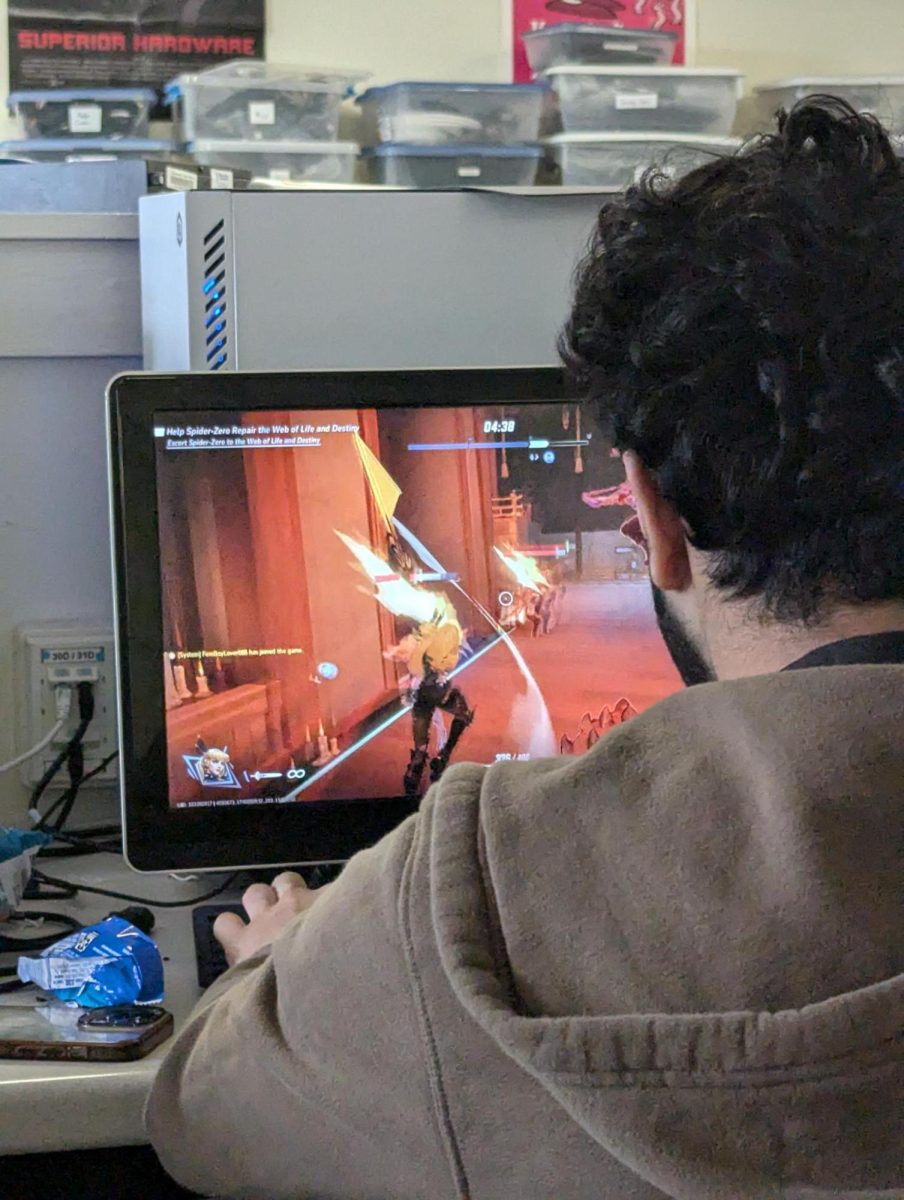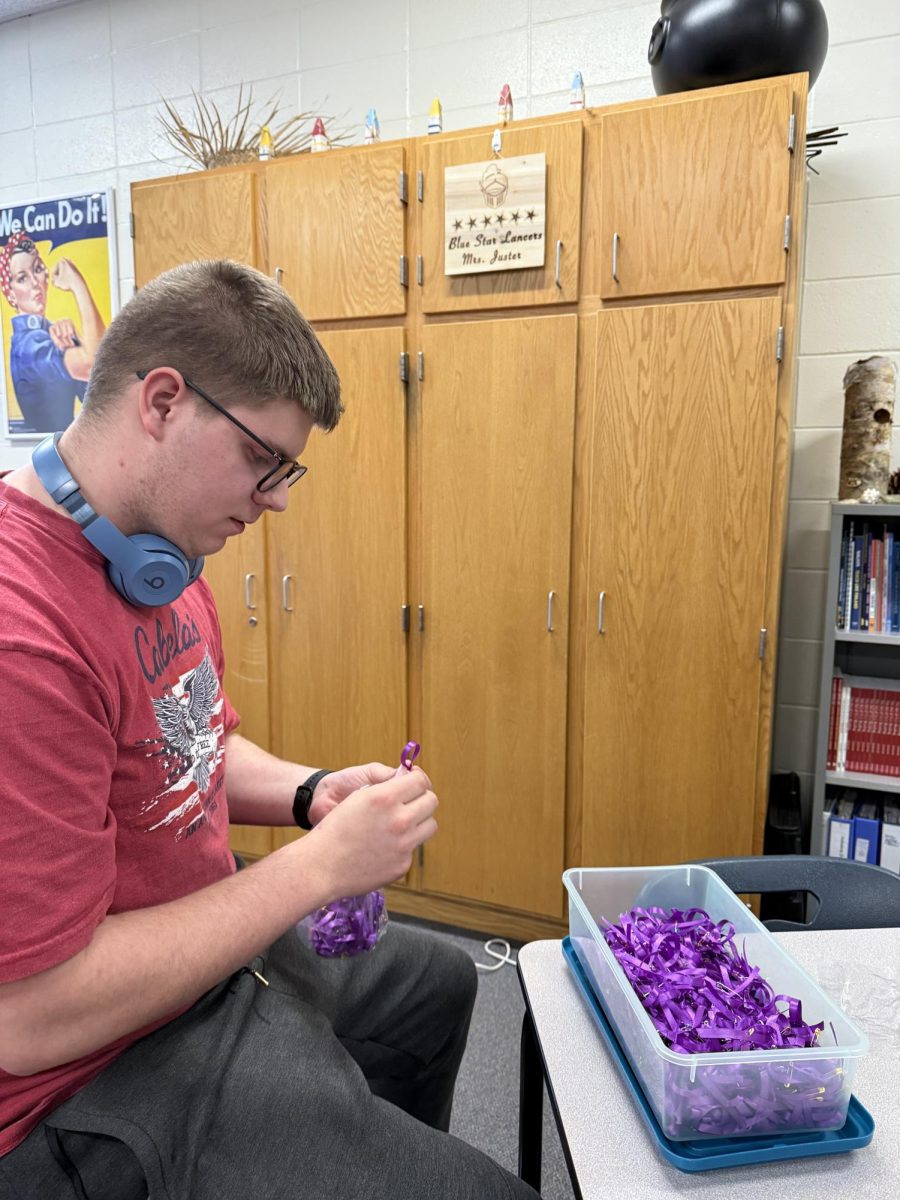The classroom hums with the low murmur of turning pages and hushed whispers, but for junior Jordan O’Neill, the world feels louder. He grips his pencil tightly as his eyes dart between the worksheet and the clock. His foot bounces beneath the desk, creating a steady rhythm against the tide of distractions. Then, he anchors himself and blocks out the noise before diving into the task.
Jordan O’Neill was diagnosed with ADHD when he was seven and has been working hard on managing his ADHD while handling more rigorous level classes.
“I was prescribed medications by my doctor to help get through the day,” O’Neill said. “I would use adderall to help me with my ADHD, and I have been using it every day, which makes me less hyperactive because sometimes in the morning I am very active. I also use guanfacine because it helps me get at least six hours of sleep, which I need in order to focus.”
O’Neill’s sophomore year tested his limits. The demands of higher-level coursework and stress became so overwhelming that they caused him to feel “tired and exhausted.”
“I remember in freshman year, I was really focusing on my class rank,” O’Neill said, “but then sophomore year, everything kind of fell apart. [Now,] I just care if I get my work done. I used to get 100s, but last year stressed me out so much that I spent less time on getting perfect grades in order not to be stressed. Something inside of me snapped, saying, ‘I do not care about this anymore.’”
O’Neill has struggled with burnout because of the stress of being organized and having time management. This challenge became clear when O’Neill fell behind after missing four days of school while out of state. What should have been a brief absence snowballed into a month-long battle to catch.
“I could not take all the work, so I am taking some less difficult classes to balance things out,” O’Neill said. “I want to take it easy next year.”
With ADHD, O’Neill finds courses like English particularly challenging. This year, having English as his first-period class has only made things harder.
“Last year, English was better because I had it D period, and I had a study afterwards,” O’Neill said. “Whatever work I did not finish, I could do during my study, but this year, [my routine] is ruined.”
With fewer opportunities to catch up on work during the day, O’Neill struggles to keep up with the demands of English class. English requires a level of abstract thinking that does not come as naturally to him.
“I am not smart like those guys who lean against a bookshelf while tilting their glasses when reading a book,” O’Neill said. “I can not think that deeply when reading books. I prefer doing direct and repetitive [assignments].”
The struggle with open-ended assignments isn’t limited to English. Despite having strong language skills in Spanish, perfectionism sometimes takes over O’Neill.
“I overthink too much,” O’Neill said. “One time, I had a Spanish project in Mrs. Bartlett’s class that should’ve been an easy 100, but I kept second-guessing myself. I turned it in two days late and got points taken off.”
Although O’Neill is capable of completing his work, staying focused presents a challenge. Spanish teacher Erin Vater noticed this struggle firsthand when O’Neill would lose focus during classroom assignments.
“[Jordan] can work really well, but the problem is not the work, [it is] the distractions,” Vater said. “Once the distractions are overcome, it’s easier [for him] to get work done.”
Staying engaged during the school day isn’t the only challenge for O’Neill; keeping up with homework is just as difficult. After hours of concentration in class, his energy is depleted by the time he gets home.
“During the day, I am hard and stiff,” O’Neill said. “I am focused at school, but then when I come home, I feel like I am jelly. I can not do any more work because I get lazy.”
Because of his ADHD, O’Neill finds math easier than other subjects. The clear rules and straightforward answers make sense to him.
“I like math, and I am really strong at it. Math is way better than English [for me],” O’Neill said. “I can do math in my sleep, but English is horrible. I cannot do English because it requires me to concentrate and pay attention.”
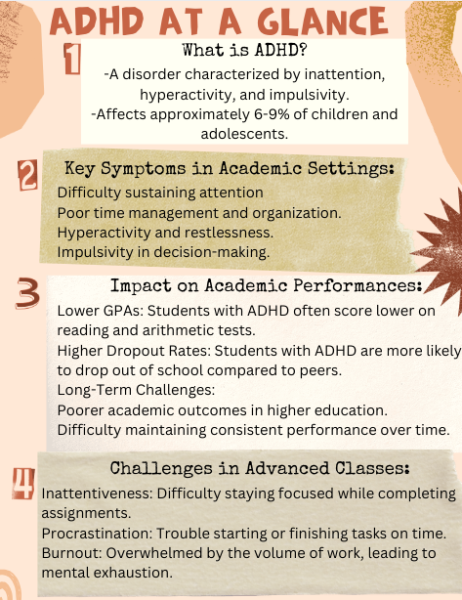
O’Neill is currently enrolled in rigorous courses like accounting, engineering, and physics, pushing himself academically while managing the effects of ADHD.
“I am taking accounting because I want to take as many math classes as I can. I want to do something math-related in the future,” O’Neill said. “I am hoping that by taking these classes, I can find my calling.”
However, ADHD presents challenges beyond coursework. Classes like chemistry are easier for O’Neill because he can memorize by writing notes before learning concepts. However, memorization has become increasingly difficult, especially in non-STEM-related classes.
“I used to have the energy to memorize, but I don’t anymore,” O’Neill said. “I feel like my brain is blocked when I have to memorize things on a computer, but on paper, it is much easier.”
During his freshman and sophomore years, O’Neill relied on teachers to walk him through confusing assignments. O’Neill feels that teachers are less willing to help him because he is a rising senior.
“I would ask questions to my teachers when I did not understand something, and they would show me how to do it,” O’Neill said. “I would be like, ‘Oh, now I understand this concept.’ Now when I ask teachers, they tell me to go back and figure it out myself and look at the notes.”
While O’Neill has faced his share of challenges, teachers such as Vater have noticed a shift in his approach to learning. O’Neill asked several questions while working on a project in the library.
“[Jordan] is more confident when he learns,” Vater said. “He is not afraid to ask for help when he needs it.”
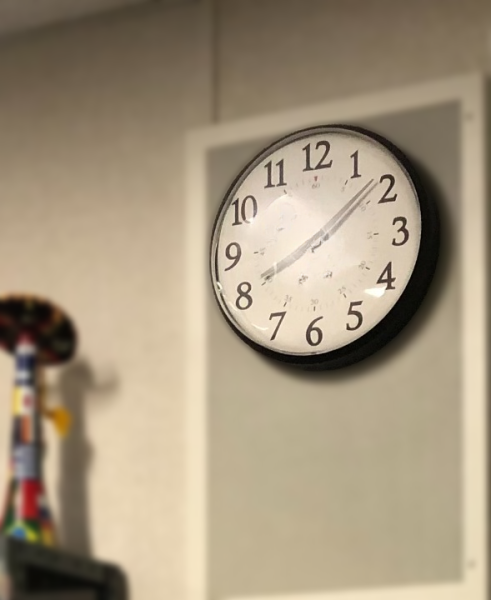
For O’Neill, self-awareness has been key. While he acknowledges his ability to handle high-level coursework, he also understands the importance of avoiding burnout.
“I used to take some honors classes, but it is a workload,” O’Neill said. “I am always capable of doing honors-level classes like geometry, chemistry, and Spanish, but I do not want to have another burnout. I am not like those people who are locked in and get to handle all that work.”
O’Neill has learned to navigate the challenges of ADHD while balancing his coursework. Instead of pushing himself to the limit, he now focuses on strategies that help him succeed.
“I’m still figuring things out, but I know I learn best in my own way,” O’Neill said. “I just have to keep finding what works for me.”
**This article was edited to provide more context.




